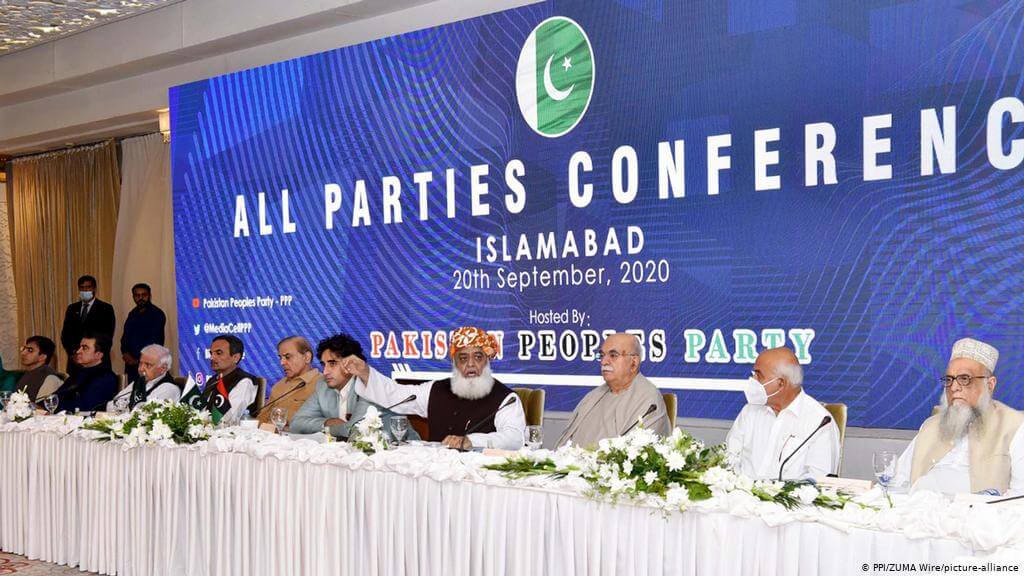On Sunday, at the All Parties Conference (APC), Pakistan’s major opposition parties launched an alliance, called the Pakistan Democratic Movement (PDM), to oust the Imran Khan-led government in Islamabad. The meeting was organised by the Pakistan Peoples’ Party (PPP), and attendees included leaders of the Pakistan Muslim League-Nawaz (PML-N) and Jamiat Ulema-e-Islam Fazi (JUI-F). The members of the alliance unanimously adopted a 26-point joint resolution, which intends to organise nationwide protests against the incumbent party, the Pakistan Tehreek-e-Insaf (PTI). The PDM also plans to recruit legal experts, students, journalists, and other members of the Pakistani society. According to the resolution, it will use “every legal and constitutional option in and out of parliament, which include moving no-confidence motions and collective resignations from assemblies at an appropriate time.”
These demonstrations will commence in October and will unravel in three phases, beginning with joint rallies in all four provinces. Then, in December, these rallies will be held on a larger scale all across the country. Finally, in the third phase, a “decisive” march will be conducted in January wherein the demonstrators will march towards Islamabad and demand the government to step down.
The primary concern of the alliance is regarding the increasing influence of the Pakistani military on the internal affairs of the country. The resolution, without specifically naming the military, said that the PTI government was being granted “fake stability by the same establishment” that interfered and influenced with the 2018 elections to bring Khan into power. The resolution further stated that this issue was of “extreme concern” and that it poses a threat to “the nation’s stability and institutions.” Consequently, the alliance called for another round of elections to be conducted in a fair and transparent manner.
Responding to the resolution, several Pakistani ministers urged the leaders of the alliance to refrain from instigating political instability. Pakistan’s Foreign Minister, Shah Mahmood Qureshi, insisted that the PDM should not “drag national institutions into politics.” Shibli Faraz, Pakistan’s Information Minister, while admitting that the opposition had the right to protest, warned that the PTI government would not permit any “violation of the law.”
In 2008, Pakistan elected its first democratically elected government following 12 years of military rule. However, the Pakistani military has always had a significant influence over the Pakistani government, specifically on issues such as national security and foreign policy. Further, the Army has often been accused of continuing to influence elections to appoint puppet rulers that will further its own interests.
Pakistan Opposition Parties Ask PM Imran Khan to Step Down Over Growing Military Influence
During the meeting, the leaders of the opposition parties announced an alliance called the Pakistan Democratic Movement, which unanimously adopted a 26-point joint resolution.
September 22, 2020

SOURCE: DW
